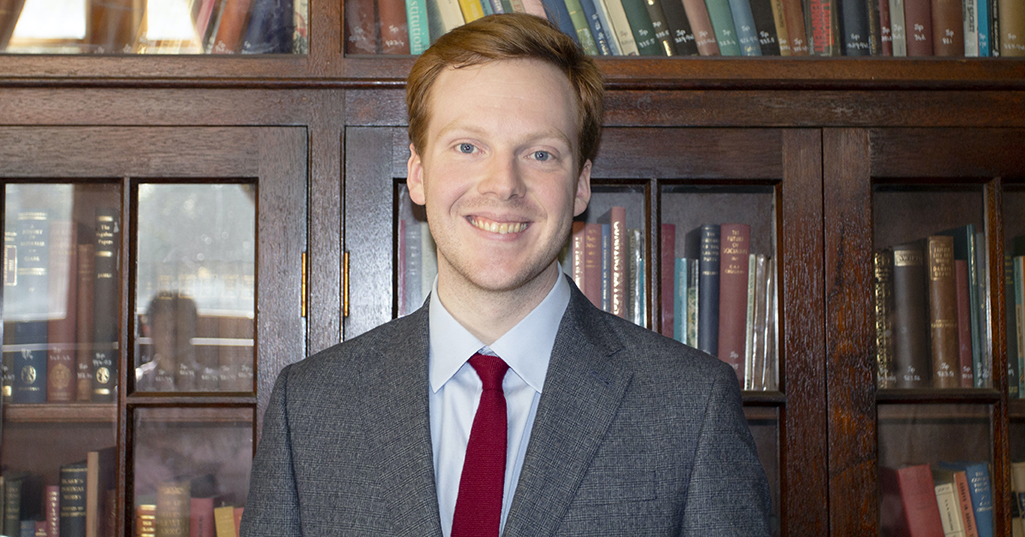In 2021, St Andrew’s introduced a new academic learning model in which Faculty Heads are responsible for leading a team of tutors in their subject areas. In addition to overseeing the delivery of subject tutorials, academic mentoring sessions and academic skills workshops, they also contribute to the College’s innovative new courses and develop academic policy to ensure the ongoing improvement of the College’s educational offerings.
Meet AC Wright, the Head of the Faculty of Arts. As well as sharing his passion for ‘humane studies’ with the College community, he has been equally delighted by the knowledge and teachings of the students themselves.
What is your official full title?
I enjoy the privilege of being one of the College’s Teaching Fellows, responsible for Arts and Social Sciences. I much prefer being a ‘fellow’ to a ‘tutor’, but not for hierarchical reasons. A tutor is supposed to be a ‘guardian’ who takes custody of a student’s learning whereas a fellow is a ‘peer’ in scholarship. Rather than being an intellectual gatekeeper, I have been trusted with the collegial delights of learning alongside St Andrew’s students.
What drew you to the position and what most interests you?
I believe in the Humanities. The doings and thoughts of human beings are endlessly fascinating. The Humanities also provide a formidable, chastening training for life and work. I am passionate about sharing the ‘humane studies’ with as many students as possible.
Whatever else we do in life – statistics, engineering, law, physical labour, business, medicine– we have to be people first and what really matters in what we do is the relationships we have with those around us. As accomplished as we are in the algorithms we write, it is our understanding of the imprecise, messy, rich web of human culture which governs our ability to be effective in the world. Just as there is a professional training for accountancy or nursing, universities offer apprenticeships in Humanity and humane thought: the Arts Degree.
As a Historian, I look around and see a lot of words for history: institutional memory, precedent, lore, experience, hindsight, and so forth. We all ‘historicise’ every day. A Humanities education gives us the rigour and skills to make sense of this. Students of literature, anthropology, politics and economics can all make the same observation. This is why the Arts Degree is as important and relevant as ever.
While the Arts do not have a monopoly on insightful, principled, perceptive thought and deeds, this field of humane study has so much to offer the world and I am honoured to take a small part in teaching the College’s students.
What are you hoping to achieve overall as Head of Faculty?
As Teaching Fellows, we are all trying to foster an intellectual culture at the College where we are critical without being cynical, charitable without being fickle, studious without being stultified. We want our students to emerge as active, fair, and reflective people.
I hope we can offer a programme of tutorials that takes each individual student further and deeper into their studies. Whatever stage a student is at, we want to help them find joy and fascination in their degrees. We will support the unique interests of students and help them get the most out of university.
What has been a highlight so far in this role?
It is an honour to support students in the study of the Arts and, while a Fellow’s administrative work furthers this end, it is nothing compared to sitting in a room with students and working on ideas. I have ‘exploited’ my position to assign myself a number of the most interesting history tutorials. The students always teach me more than I impart and I have enjoyed learning about subjects as diverse as New York in 1913 and 16th century Spanish imperial structures in South America.
What are your outside-of-Andrew’s recent career achievements/goals?
I am in the final year of my research master’s degree where I am writing about the connections between ‘highbrow’ culture and everyday experience in early Renaissance Italy. I am doing this through a study of landscapes because the shared spaces of the public square, street fountain, planted field or fought-over territory toss together lives and ideas in a way that is ripe for grain-crossing research.
Though I expect further study to be part of my journey, I am eager for circuitous career experiences in the near future.

